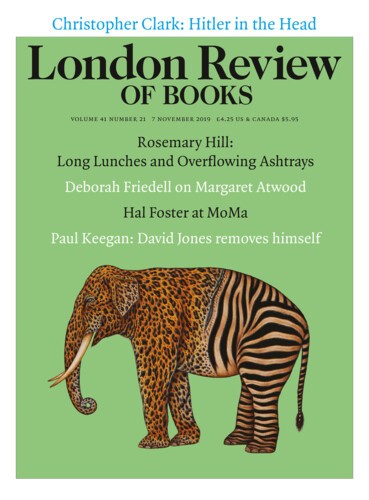How we collectively itch under their collective whine.
All night insects thicken round the clinic’s outdoor light.
In the malaria ward the beds are pushed so close
the sleepers share the same bad dream: a female mosquito
filling her soft bulb, dipping her beak for a drop of blood
to ripen her eggs; how her abdomen’s rosé flush
deepens to ruby as she siphons out water as waste.
The sleepers parch.
Over at the NGO dorm we swap mosquito lore like cards;
they become accustomed to, or are indifferent to,
or possibly mock citronella; they’ll find a way in –
even the smallest tear in a mosquito net is an open door
and your body is a welcome mat on which they wipe their feet
before inserting a straw; they use two serrated needles
to cut through your tissues, two needles to hold the flesh apart,
one to insert a chemical spit to keep your blood running,
and a proboscis to home in, to suck … their eyesight’s alleged
to be poor – they see you better when you move
and are attracted to blondes and restless sleepers;
they smell your breath; some of us smell sweeter.
I’m one of their chosen ones, and verge on paranoia:
long sleeves, trousers tucked into socks after dark,
a cotton scarf to protect the back of my neck.
My lips tingle with deet. If I lick them my tongue
bitters and numbs. I brush at my face obsessively,
keep my feet tucked under me and chafe.
I’m not the only one. Out on the verandah
the Dutch intern swipes an electric racket
through the air. Every time it intercepts an insect
it makes an exaggerated buzz. It pleases him
to hear them frizz, to imagine their bodies forked
in hot blue light, as they electrocute and spasm.
Like deet, his bat is indiscriminate and zaps
fruit flies, crane flies, moths, beetles on the wing –
think of insecticide sprayed over cities from planes,
falling mist-fine over ditches, a soft particulate rain;
the sweltering night suddenly quiet in the city park,
the frogs’ pale bellies moon-side up, snakes like
sloppy inner tubes rotting in the grass.
And think of Honesty’s daughter, hallucinating in bed
as Honesty loosens her cornrows with trembling fingers
and sings to her in undertones collapsed by her own
uneven breath, the nearest clinic hours away on broken roads;
the malaria swells and burns till her girl arches
from her pallet bed and drums her heels, her eyes
rolled back in her head, raised beyond and gone
though her mother tries to call her home. Daughter.
Baby girl. It makes me sick to write this
as if I make it happen, but every two minutes, a child.
Survivors sway in the open bed of the hired trucks
ululating and screaming as they rattle to the burial ground.
Meanwhile Immo Hanson, gentle Professor,
inserts his naked wrist through the sleeved net tunnel
of a mosquito incubator – a special, iridescent species –
and suffers them to feed, keeps steady despite the itch,
because these rainforest jewels might have secrets to tell;
and in London a woman splices a mosquito egg to corrupt the gene
that defines male sex; there will be infertile males
and in eight generations (a matter of days?) the brood
will collapse. Still, my architect friend on the Ilha
sleeps in one bed with his Mozambican wife and sons;
he jolts awake every few minutes to check
that his wife and boys’ beloved flesh isn’t touching
the net or near the net or within arm’s length of the net
where he imagines a mosquito might intrude its fine needle.
Again and again he shuffles them in, till they sleep in a riddled heap
at the centre of the bed, swimming in the vast margins
of his terror. I don’t have children yet, though I have miscarried
and hold myself like a crystal glass, full to the brim,
afraid to spill, afraid to harm a single ovum.
When I am feverish I take myself to the hospital
and queue to have my finger pricked in the whitewashed clinic.
Hundreds of mothers mill outside the slow pharmacy;
pills are passed at intervals through a metal grille.
Babies are weighed on clock-faced scales
suspended from the ceiling, lain in dangling, knotted slings
the way, in old cartoons, newborns are brought in bundles
hanging from a stork’s beak, the longed-for gift.
The man driven insane by dysentery,
turmeric-yellow shit dribbling down his leg
stirs in the hospital garbage with a stick
and won’t let anyone come near. My name is called.
I’ve tested negative and can go. I walk, shaking with relief
and fever back to the dorm, back through air-con buses
and airports and planes, back to my privileged Northern isle
in which my babies will be inoculated against most ills
and god willing, In’sh’Allah (whatever it takes I will give),
will live. I do not deserve this life.
Send Letters To:
The Editor
London Review of Books,
28 Little Russell Street
London, WC1A 2HN
letters@lrb.co.uk
Please include name, address, and a telephone number.

